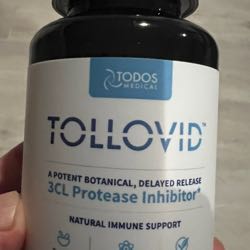Amarantus Announces a New Eltoprazine Publication
Post# of 30070

Download as PDF
AUGUST 05, 2015
Latest preclinical data in the peer-reviewed journal 'Movement Disorders' support previous nonclinical and clinical findings that eltoprazine is effective against Parkinson's Disease L-dopa induced dyskinesia (PD-LID)
Eltoprazine treatment attenuates the development and expression of PD-LID by regulating neurochemical circuitry involved in motor control, but does not compromise the efficacy of levodopa therapy
Data further support the design and dose selection of the ongoing Phase 2b clinical study
SAN FRANCISCO and GENEVA, Aug. 5, 2015 (GLOBE NEWSWIRE) -- Amarantus BioScience Holdings, Inc. (OTCQX:AMBS), a biotechnology company developing therapeutic and diagnostic product candidates in orphan indications and neurology, announced the publication of preclinical model data demonstrating that eltoprazine prevents L-dopa induced dyskinesias. The paper entitled, "Eltoprazine Prevents Dyskinesias by Reducing Striatal Glutamate and Direct Pathway Neuron Activity," from groups including the National Institute of Neuroscience in Italy, has been published in Movement Disorders, a journal of the International Parkinson and Movement Disorder Society (MDS).
Eltoprazine is a small molecule 5HT1A/1B partial agonist in Phase 2b clinical development for the treatment of Parkinson's disease levodopa-induced dyskinesia (PD-LID). PD-LID is an abnormal involuntary, movement disorder resulting from prolonged levodopa-based therapy, the most commonly prescribed treatment for Parkinson's disease. PD-LID occurs in approximately 60-80% of Parkinson's disease (PD) patients and is one of the most difficult problems facing people with the disease. This dyskinesia can be severely disabling and impact quality of life by prohibiting the ability to perform routine daily functions.
"I am very excited by these new results, as they not only confirm the anti PD-LID activity of eltoprazine in another laboratory, but the authors also provide important evidence concerning the neurochemical mechanisms and pathways underlying eltoprazine's positive effects in PD-LID," stated David A. Lowe, Ph.D., member of the Board of Amarantus BioScience Holdings, Inc. "Additionally this study further validates the Phase 2a clinical data published earlier this year in the journal BRAIN showing that eltoprazine has a significant beneficial anti-dyskinesia effect with no reduction of levodopa efficacy. Furthermore, the doses used in this preclinical study are highly supportive of those being studied in the ongoing Phase 2b trial of eltoprazine."
Previous preclinical and clinical evidence shows that eltoprazine, a mixed 5-HT1A /5-HT1B receptor agonist, is effective in inhibiting PD-LID in experimental animals and parkinsonian patients. The new eltoprazine study published in Movement Disorders was conducted using a 6-hydroxydopamine-hemilesioned rat model of Parkinson's disease to investigate the mechanisms underlying the therapeutic effect of eltoprazine in PD-LID.
The data demonstrated that eltoprazine reduced the development and expression of PD-LID with maintenance of motor coordination. Correspondingly, eltoprazine reduced the rise of two important transmitter substances (GABA and Glutamate) as well as other relevant biochemical signals induced by L-Dopa in the striatum and substantia nigra, two brain areas involved in motor control. Importantly, there was no evidence of a detrimental effect on the levodopa-induced increase in striatal dopamine, indicating that the levodopa efficacy, so important in the treatment of PD, is not compromised by long-term treatment with eltoprazine.
Dr. Lowe added, "Levodopa treatment is an effective standard of care treatment for patients to manage PD motor symptoms, despite the occurrence of dyskinesia with its long-term use. The fact that eltoprazine prevents PD-LID and has no adverse effect on the efficacy of levodopa treatment is very important to improving quality of life in PD. We believe eltoprazine has the potential to be an impactful synergistic therapy for individuals with Parkinson's disease on levodopa-based regimens."
Amarantus has initiated a multi-center, 60-subject Phase 2b study of eltoprazine in individuals with PD-LID. The study is a double-blind, placebo-controlled, four-way crossover, dose range finding clinical trial designed to evaluate dose response effect of repeated eltoprazine dosing on safety, tolerability and dyskinesia severity using state-of-the-art rating scales, diaries and motion sensors. For patients and physicians interested in enrollment information for the Phase 2b clinical study with eltoprazine for the treatment of PD-LID please visit clinicaltrials.gov and use identifier: NCT02439125. The Company expects to report top-line results from the eltoprazine Phase 2b study in the first half of 2016.
For online access to the abstract, "Eltoprazine Prevents Dyskinesias by Reducing Striatal Glutamate and Direct Pathway Neuron Activity," please click http://ow.ly/QbZB6.
 (0)
(0) (0)
(0)